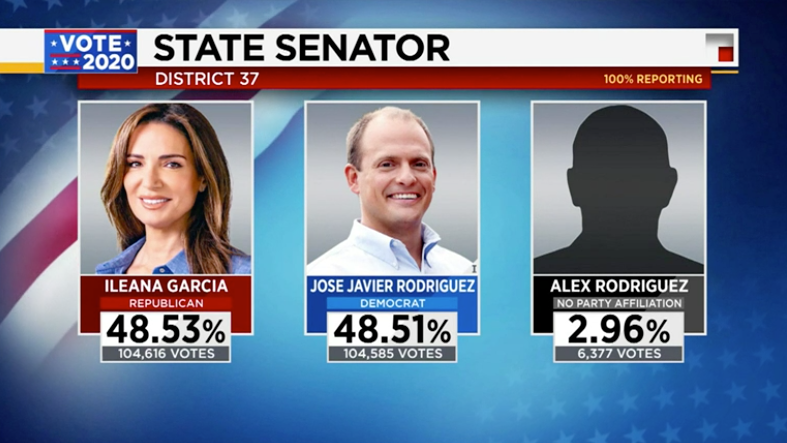GOP using ‘shadow candidates’ in crucial Florida districts, report claims
Dark money funded campaigns to draw votes away from Democrats running for state Senate

Your support helps us to tell the story
From reproductive rights to climate change to Big Tech, The Independent is on the ground when the story is developing. Whether it's investigating the financials of Elon Musk's pro-Trump PAC or producing our latest documentary, 'The A Word', which shines a light on the American women fighting for reproductive rights, we know how important it is to parse out the facts from the messaging.
At such a critical moment in US history, we need reporters on the ground. Your donation allows us to keep sending journalists to speak to both sides of the story.
The Independent is trusted by Americans across the entire political spectrum. And unlike many other quality news outlets, we choose not to lock Americans out of our reporting and analysis with paywalls. We believe quality journalism should be available to everyone, paid for by those who can afford it.
Your support makes all the difference.Three candidates for Florida Senate district races were “shill candidates” whose presence was intended to siphon votes from those running for the Democratic Party, a report claims.
Local 10 News in Miami says that the three candidates, who list no party affiliation, have similarities and connections suggesting that they are all linked by funding from the same dark money sources.
The implication is that the candidates ran with no intention other than to upset voting patterns, as they did not campaign or fundraise.
In the District 37 race, a recount is underway as there were only 31 votes separating Republican candidate Ileana Garcia and Democratic candidate Jose Javier Rodriguez.
A third candidate, unaffiliated with either party, shares Mr Rodriguez’s last name and attracted more than 6,300 votes.
Local 10 began to investigate Alexis Rodriguez’s candidacy in October when an executive producer could not locate a headshot of the candidate for election broadcast purposes.
He would not return calls and had falsified his address on filing forms in June, giving his residence as a home that he had not lived in for five years.
A search of campaign finance records by Local 10 linked him to two other no-party candidates — one in central Florida, the other, like Mr Rodriguez, also in Miami-Dade.
Comparing Mr Rodriguez with Celso Alfonso, an 81-year-old retiree running as a no-party candidate in District 39, brought up several similarities.
Both had until recently been registered as Republicans. Both paid a qualifying free to be candidates on 12 June. Both listed Gmail addresses in the same format — first initial, last name, district number, and 2020. And both list just one contribution to their campaign — a $2,000 self-loan.
Support for each candidate also comes from the same Political Action Committee, ‘Our Florida’, which lists no previous political contributions or expenditures.
The PAC paid for fliers for each candidate from the same printing firm, Advance Impressions — its only expenditure, dated 5 October for $370,000 — using funds contributed two days earlier by a firm called Proclivity.
Proclivity’s address is a mailbox at a UPS Store in Atlanta, Georgia.
The money trail ends there, but the impact of Mr Rodriguez’s candidacy in District 37 is without question, drawing thousands of votes away from the Democratic Party candidate leaving an incredibly tight race to be decided by a recount.
Mr Alfonso only attracted a small number of votes in District 39. The Republican candidate won with a convincing lead.
Under Florida law the actions of the PAC are legal.
District 37 and District 39 were considered key battlegrounds for the state Senate, in which Republicans controlled 23 seats to the Democrats 17 going into the 2020 election.
Subscribe to Independent Premium to bookmark this article
Want to bookmark your favourite articles and stories to read or reference later? Start your Independent Premium subscription today.





Join our commenting forum
Join thought-provoking conversations, follow other Independent readers and see their replies
Comments